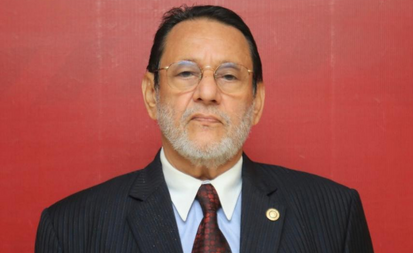An overview of the hospitality industry and its challenges and commitment to sustainability
Author Article by Rakesh Mathur, Director & Principal Advisor of Lords Hotels & Resorts , President responsible tourism society of India (RTSOI) Ex board member of Indian heritage hotels association. Post-covid, the hospitality industry has completely

Author Article by Rakesh Mathur, Director & Principal Advisor of Lords Hotels & Resorts , President responsible tourism society of India (RTSOI) Ex board member of Indian heritage hotels association.
Post-covid, the hospitality industry has completely undergone a lot of transition and issues confronting it are very different from pre-covid days. Pre-Covid, Hospitality was a steadily growing industry in India, catering to world-wide tourists. In the year 2020-21 & post that, there was a sudden surge in domestic tourism.
This phenomenal rise in domestic tourism led to two impacts
a) A tremendous increase in room rates due to high occupancies
b) Investment started pouring in into the hotels and hospitality sector due to increase in demand.
The room rates in the 5 Star and Luxury segment accelerated hugely by as much as approximately 200%, especially in Resort areas taking advantage of the wellness factor. However these rates grew beyond the means of Corporate travellers or even the upper mid-market segment.
Both these segments and the mid-market segment represent the bulk of domestic travelers, and it is only a matter of time before this bubble of high rates bursts and comes down to reasonable affordable levels.
Another factor is that, seeing these rates, huge investments poured in into the hospitality industry. Very soon the basic principle of supply and demand will set in and rates will stabilise at a reasonable levels. This will impact projections and forecasts.
The hospitality industry is a high-capital investment industry, and investors with high borrowings and limited staying power will be impacted, which may lead to an increase in Sale transactions in the Industry.
It is reasonable to suggest that both domestic tourism and mid-market and corporate tourism will continue to grow, as evidenced by the bulk of tourists and travelers. Thus, companies catering to this segment will survive better in the long run.
Foreign tourism has been impacted by COVID-19. Specially long haul tourism. Our Marketing focus should thus be on short and medium haul foreign tourists. Foreign tourists are primarily focused on heritage, wellness, and spirituality, which should thus also be the focus of our marketing efforts. Secondly, we must try to divert outbound Indian tourists to new , untapped, and unique Indian tourist destinations, rather than have them travel abroad.
What are the challenges?
Among the challenges we focused on were the following:
1. We need to firstly improve our infrastructure for travel within the country in terms of quality and connectivity. I do acknowledge there is lots of work in progress in improving road connectivity, but a lot of finer details and facilities are needed, especially for ladies, rest, and recreational facilities.
2. We need to create and promote alternate destinations for summer escapes apart from the known hill stations developed during the British Raj, because their recurring capacity is overburdened.
3. There is a general shortage of skilled manpower at the ground level in the organized sector. This requires setting up a basic skills institute in high-density tourist areas.
4. We have a huge segment engaged in the unorganised sector, i.e., Dhabas, eateries, local unregistered guest houses, etc., which need to be brought under control in terms of quality, hygiene,sanitation,environmental practices,etc.
5.Also, there is a challenge imposed by the rapid increase in technology, where stand-alone units find it difficult to keep pace with the development and investment needed. This will lead to further consolidation of domestic hotel groups,like Lords Hotels & Resorts for example as it will provide an opportunity to offer this value to stand alone hotels.
All tourism service providers’ sustainability practises need to be enforced in all segments, i.e., hotels,travel companies,tourism destinations, and all staff engaged in the tourism industry.
The organised sector has introduced several sustainability norms and practises but needs to do a lot more in areas like segregation of garbage, eradication of plastic material, especially water bottles, conservation of energy, and the introduction of environment-friendly energy consumption, water recycling, and conservation.
Environmental awareness is certainly lacking in the unorganised sector, where no practises are followed and no norms are enforced. You just have to look behind all those beautiful Dhabas on highways or in the back lanes of unregistered guest houses.
A change can only be brought about by educating schoolchildren, sensitising tourism service providers by conducting workshops,sensitizing the normal traveller through awareness programmes on television, radio, and newspapers, etc., and imposing environmental laws, including severe fines for violators at tourism destinations.
All these activities are the focus of the responsible tourism society of India in collaboration with the United Nations Environment Program (UNEP) and the Ministry of Tourism (MOT) Government of India
—-
 English
English French
French German
German Italian
Italian




